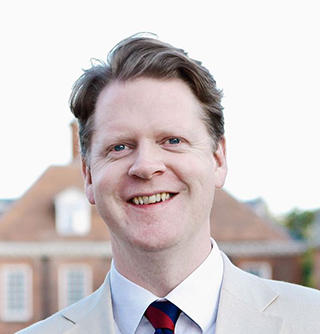Date:
Location:
The Center for Middle Eastern Studies is pleased to present
 Eamonn Gearon
Eamonn Gearon
Professorial Lecturer, Johns Hopkins University-SAIS; Senior Fellow, Middle East Policy Council
Egypt’s military has been a central force in local politics for more than 60 years. However popular the recent coup, it was just their latest power grab. And yet, the ongoing crackdown against the Muslim Brotherhood hides more than it reveals. Behind the uniform, Egypt’s Armed Forces are a complex mix of interests: political, economic, and Islamist. During phase one of the revolution, one of the most commonly heard chants during the protests that forced Hosni Mubarak from office was, “The Army and the people are one.” Is this still the case, or have the Army and the people gone their separate ways? In July 2013, Egypt’s senior military leadership overthrew and imprisoned President Mohamed Morsi, the country’s first democratically elected president. Do the men in uniform have a plan to put the country on a path to democracy, or maintain a military dictatorship?
Eamonn Gearon is a Middle East regional specialist who has lived and worked from Kabul to Casablanca for close to 20 years, before moving to America in 2012. Eamonn is a Professorial Lecturer at Johns Hopkins University-SAIS, where he teaches North African politics and security. He is also a Senior Fellow at the Middle East Policy Council. A close observer of Islamist-inspired terrorist groups, Eamonn provides analysis on contemporary politics, terrorism and the region’s state-level Armed Forces for IHS-Jane’s and others. Eamonn is also the co-Founder and President of “The Siwa Group,” a consultancy firm that helps the private sector, government and military to understand and work more effectively across the Greater Middle East. The BBC described his latest book, The Sahara: A Cultural History, as “vital background reading for anyone who wants to understand the deep roots of the Arab Spring.”
Contact: Liz Flanagan
